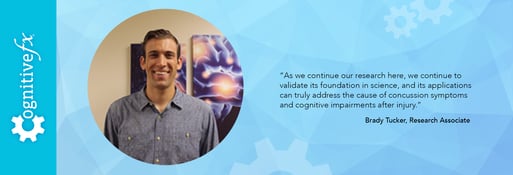Setting & Achieving Goals

Everyone has their own ideas and opinions about goals and goal setting. One of the things that I notice as I work with individuals during EPIC concussion treatment, is that a lot of time it is not the goals that we are failing at but instead the goal setting. It may sound like a small difference but it can have a huge impact on achieving our goals.
We want you to know how to properly set goals so that you can successfully move forward in your daily life towards your goals not only during treatment but after treatment as well.
Start with a Simple Goal
The very first step to getting started on a new goal is to make it easy and just choose one goal. Sometimes we set ourselves up to fail because we unintentionally have impossible standards, so start with something simple and set yourself up for success!
Creating a Simple Goal: The Process
- Identify your goal and make this as specific as possible.
We tend to set unrealistic goals in a sense that we do not really know what they mean. For example, I often hear people say “I want to exercise more” or “I want to communicate better” those are a great start for a goal, but what does that really mean?
- Once you have identified your goal write it out.
It is okay if it starts out vague, we will take you through the process to make it more specific. As an example, let's use “I want to exercise more.”
- Ask yourself what actions can I take today or tomorrow work towards my goal?
If I want to exercise more then I might answer: “start running again” or “schedule a time each day to go on a walk or go for a run.”
- Making Your Goal as Specific as Possible
Write down the 5 W’s to make your goal clear.
For example:
- Who: ME!
- What: I want to start running again for 20 minutes 3 times a week.
- Where: I like to run outside at the park down the street.
- When: I have more time in the mornings and that works best with my schedule after breakfast around 7:30 am.
- Why: I want to start running again so that I can work towards my larger goal to lead a healthy life.
The more specific you are in defining your goal and what exactly “exercise more” means. The easier it will be to evaluate after.
Congratulations! You know exactly what you are doing tomorrow to work towards your goal of exercising more!
Don't Forget to Evaluate Your Goals
The second struggle that I often find, is that people do not come back to analyze their progress. What this means is that we need to re-evaluate our action steps for the next day.
Many times when we do not meet our goals we are left feeling frustrated, bummed out or flustered—those are not feelings that encourage us to continue to set goals.
Here are 3 questions you can ask yourself at the end of the day to evaluate and re-motivate yourself:
- What are three things I did well today?
Asking this question forces us to think back and brainstorm our small triumphs from that day- THERE ARE MANY! For example, I ate a healthy breakfast, and I stretched when I woke up, and I got through my morning with ease etc.
- Based on today’s performance what is it that I still want to improve on?
With this question, sometimes our goal remains the same: run for 20 minutes at 7:30 am tomorrow. Sometimes we realize that there is something else that we want to focus on first. For example, I need to make sure that I work on establishing a healthy diet, or eating a healthy breakfast before I start working out. Therefore, the new goal would be: create a more healthy diet.
- What is one thing that I could do differently to lead to that desired improvement?
This last question is learning to focus and pick 1 thing to do better in your actions working toward your overall goal. It could be something small, such as set my alarm earlier to give myself more time to get ready for the workout or pull out my workout clothes the night before.
Once you have asked yourself those three questions, you have your NOW WHAT for tomorrow. You know exactly what you are doing to work to reach your goal.
While setting, and achieving goals can be overwhelming, we encourage you to start simple, be specific with your goals, and don’t forget to re-evaluate so that you can truly succeed and surpass your goals. Remember that we believe in you and that you have the ability to do hard things, and to create a better life for yourself, one step and one goal at a time.

About the author
Cognitive FX TeamThe "Cognitive FX Team" is a collaborative ensemble of distinguished doctors, therapists, and practitioners. Our experts are pioneers in the field of neuroimaging and concussion treatment. With extensive experience and a strong commitment to patient care, our team excels in utilizing cutting-edge technologies, such as functional MRI (fMRI), to provide personalized diagnostic and treatment strategies. Our renowned professionals have published groundbreaking research, developed innovative neuroimaging biomarkers, and conducted thousands of individualized patient assessments. We take pride in our holistic approach to patient care, focusing on physical, cognitive, and emotional aspects of recovery. As leaders in the industry, the Cognitive FX Team is dedicated to advancing the science of concussion diagnosis and treatment to provide our patients with the highest level of care and support.







